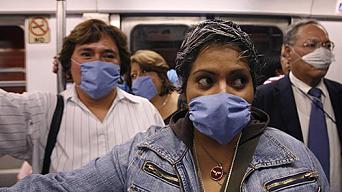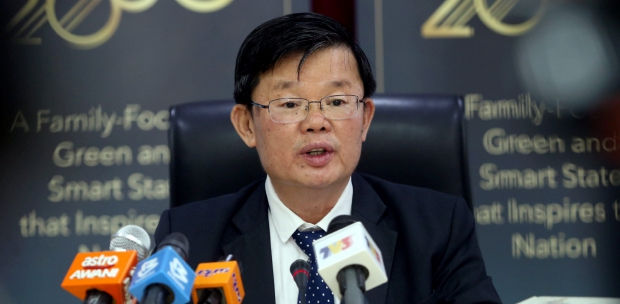https://youtu.be/Pucoeb2KKOQ
How China can end US rivalry and realise its vision of a shared future for humanity, as the world struggles with the pandemic
The US-China rivalry only feeds the pandemic, when global cooperation is needed. This is where China’s vision of a shared destiny for humanity can be useful, provided it can be elevated above suspicions of a Beijing power grabNever has such cooperation been needed more urgently – to battle and contain the pandemic and to sustain and bolster the world economy. Containing the global pandemic, like bolstering the global economy, depends on US-China collaboration.
. If climate change is the world’s most intractable chronic problem, then Covid-19 is the world’s most severe acute problem. My two favourite countries have a choice: either work together to fight the pandemic, developing drugs and vaccines to kill and stop Covid-19, or suffer an out-of-control global pandemic and a chain-reaction cratering of the global economy. Truly, nations will fight the virus and collectively win, or fight each other and collectively lose.
Although China has well-earned respect for curbing its outbreak, there is room for critique, correction and improvement. President Xi Jinping stresses drawing lessons from the outbreak to improve the country's systems for major epidemic control, prevention and public health emergency management.
Apropos of the pandemic, Xi’s repeated call to build “a community with a shared future for all humanity” is a grand vision with multiple applications. For seven years, it has driven foreign policy, especially the Belt and Road Initiative , helping to rectify global imbalances.
https://youtu.be/v34MfJJAZA0
While fighting disease or controlling pandemics have always been a “shared future” benefit, it was always tucked within lists of other benefits, such as climate control, preventing terrorism, interdicting drugs and the like. Few ever imagined that a pandemic could become so grave so fast. But as the pandemic has burst into planetary consciousness, it demonstrates viscerally the global criticality of “shared future” thinking.
The challenge for China is to elevate Xi’s vision above what appears to some as competitive positioning or even as a sprint to assert China’s leadership. China’s experience in containing the contagion, which many countries now desperately need, provides just such an opportunity.
By sending “battle-tested” medical teams to countries under siege, China brings to bear experts with contemporary frontline epidemic experience. What is not well appreciated in the tops-of-trees daily recitations of cases and deaths are China’s evolved know-how and the meticulous work of Chinese health care and logistics professionals.
Exporting coronavirus knowledge, China sends medical teams to countries to help fight pandemic https://youtu.be/jTtqB-zVUAw
There is a problem, though. Emotions worldwide are frayed, rubbed raw by the pandemic’s daily-life disruptions, with economic devastation threatening to exceed that of the 2008 global financial crisis. In this toxic psychological environment, when non-stop news, especially in social media, amplifies fantastical, scurrilous, unsubstantiated rumours by insensitive officials or block-brained conspiracy theorists, attitudes harden and antagonisms ossify. Indigenous nationalism flares in vicious circles.
It takes no cleverness to inflame feelings with glib rhetoric or political insults. Rational people must work together, not allow fringe invective to erode the capacity to fight a common enemy.
Containment of the polemic will be more challenging than containment of the coronavirus; the latter likely to burn out before the former. If so, Chinese views of America, and American views of China, are only going to deteriorate further, to the detriment of all. Enlightened leadership should temper, not inflame, indigenous nationalism. We cannot allow mutual exhaustion to be our last hope.
Trump stops calling coronavirus ‘Chinese virus’ and says Asian-Americans not to blame for outbreak https://youtu.be/7DbgSMD847Q
China’s vision of “a community with a shared future for mankind”, exhorting all nations to act for the common good, fits our turbulent times. For this reason, China should resist finding this phrase turned into a cliché or satire, catalysed inadvertently by endless repetition or forced conformity into a single expression or translation.
Why not encourage various expressions, enabling officials and experts to use their own words, thereby enriching the vision, keeping it fresh and timely?
Originally, the English translation was “a community of common destiny for mankind”, which is more literal and rather elegant. But then, I was told, “destiny” was deemed to be too passive or fatalistic, not sufficiently proactive and positive, which led to the less literal “shared future”. “Shared future” is an evocative phase, reflecting Chinese tradition and offering hope for a better tomorrow.
Yet with constant repetition, “a community with a shared future for mankind” can begin to sound, paradoxically, like an exclusive Chinese mantra, and thereby can begin to elicit, in some countries or cultures, negative emotions, instead of conveying positive contributions.
Labels carry messages – and some interpret China’s phrase as seeking to get the whole world to march under its national banner. This misreads China, but by triggering resistance, the static phrase undermines China’s capacity to help bring about in reality such a community of common destiny or shared future.
China’s vision is a universal message shared by many cultures and China might reach out for similar ideas. China’s challenge is to express the vision in language with which other cultures can identify and feel comfortable supporting.
To be clear, read literally and without bias, a “community with a shared future for mankind” is a powerful exhortation that should benefit the world. That is why the phrase should be protected and enriched by also allowing other, diverse English phrases to represent the original Chinese.
A third of coronavirus cases may be 'silent carriers', classified Chinese data suggests
https://youtu.be/S31-qL_Ax5E
The objective is to enable the global community to take collective ownership of the grand vision. Given the global pandemic, the global community must take collective ownership.
Here are three other possible expressions, the first more literal, the second and third taking more explanatory licence: humanity is a community of common destiny (a shared future); humanity’s common destiny (shared future) is the guiding principle of our times; and, recognise humanity’s common destiny (shared future) to build a global community.
What China seeks is what humanity needs, especially with the pandemic, and it behooves people of goodwill everywhere to work together to transform rhetoric into reality. - South China Morning Post.
By Robert Lawrence Kuhn, a public intellectual and international corporate strategist, won the China Reform Friendship Medal (2018)
Robert Lawrence Kuhn is a public intellectual, international corporate strategist and investment banker, and a China political/economics commentator featured on the BBC, CNN, Bloomberg. For more than 25 years, he has worked with China’s leaders. He has published over 30 books, including How China’s Leaders Think (featuring President Xi Jinping), and The Man Who Changed China: The Life and Legacy of Jiang Zemin. He is the host of Closer to China with R.L.Kuhn on CCTV News.
Coronavirus outbreak Coronavirus outbreak: All stories | US-China relations | US-China trade war | US-China trade war: Opinion | US-China trade war: All stories | Belt and Road Initiative | Belt and Road: Comment | China leadership
Source link
Read more:
New York State has nearly 60,000 confirmed cases
https://youtu.be/t2Pm4H7nLzE
Chinese experts, netizens offer advice to help US combat coronavirus
The US, the new epicenter of the COVID-19 pandemic with the highest infections of over 100,000 now, should announce stringent lockdowns in the worst-hit regions and accelerate testing and hospitalization to curb the spread of the virus, which might help save time wasted from previous buck-passing, Chinese experts said.Wuhan's manufacturing back on track as industrial powerhouse lifts lockdown
Wuhan – the industrial city in Central China's Hubei Province where the coronavirus first emerged in the country – is restarting commercial and production activities following a two-month lockdown. The sprawling city is likely to revive its pillar manufacturing industry soon although it faces labor shortages.Related posts:
https://youtu.be/NHKs8clA4GI https://youtu.be/_zElnBGUj-w https://youtu.be/_mSwlPKFjQM https://youtu.be/8WkAZ5FzttM https...
Viral diplomatic wars: Trump’s labelling of
Covid-19 as a ‘Chinese virus’ earlier this month has infuriated Beijing
and ethnic Chinese w...
https://youtu.be/uR_LfkGwBG8 As readers will recall from the earlier article (above), Japanese and Taiwanese epidemiologists and pharma
https://youtu.be/Y_dU2RCqWs4 FORCED TO SHUT DOWN WHEN VIRUSES LEAKED AUGUST 2019 US SOLDIERS WERE INFECTED 300 HUNDRED CAM...
https://youtu.be/-wA2aMdCGZM New coronavirus carriers found in Italy According to the latest reports from the Italian media, the &qu...
The first clinical trial of the novel
coronavirus vaccine in China has kicked off as volunteers taking part in
the project started to sh...



























